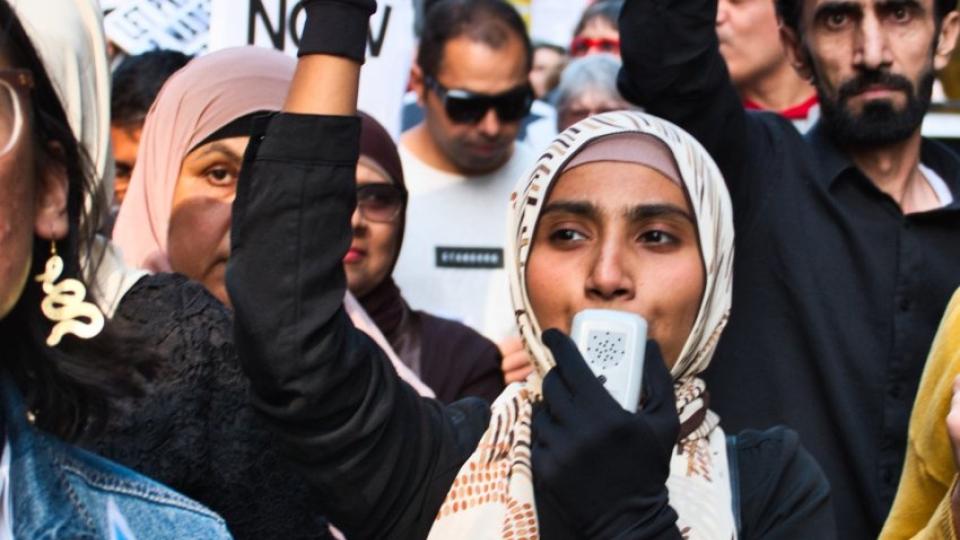Oppose Labor’s me-too racist response to court decision on indefinite detention

Labor’s reaction to the November 8 High Court ruling that indefinite detention is unlawful, underscores its continuing racist scapegoating of refugees.
The High Court found that indefinite immigration detention constitutes punishment. The government was then obliged to release more than 100 people — some convicted for minor offences and others without convictions in Australia, but detained on “character” grounds.
Some had already been released and then re-detained — often for longer. Only a handful had been convicted of more serious charges.
Five detainees who would have been affected by the High Court decision had already been released into community detention under the Coalition government and Labor had already released another 16.
The Australian Human Rights Commission said the system of mandatory and indefinite detention had “affected the lives of tens of thousands of people, most of whom came to this country seeking protection as refugees”. At the end of August, 1056 people were in immigration detention, 124 of whom had been detained for more than five years.
The court’s decision vindicated the campaign against indefinite detention, arguing it is a form of torture, leading to lasting damage.
The court decision should set a precedent for all refugees in indefinite detention to be released.
The reasoning behind the decision, which overturned a 2004 ruling, is that individuals cannot be punished without reason.
Prior to this, detainees who were stateless refugees, or from countries with the death penalty, were often assessed as being of “bad character”. When they could not be deported, they were detained indefinitely.
When it was in opposition, Labor promised a more humane approach, but it is now fast-tracking a new system of preventative detention to allow courts to re-detain some of those who have just been released.
Labor has allowed itself to be wedged by Opposition leader Peter Dutton, who claims the newly-released detainees are “all criminals”.
Dutton’s fear mongering and racism has had its desired effect. Home affairs minister Clare O’Neil said: “If it were up to me, all of these people would still be in detention”. She aims to get new laws through parliament over the next week, saying parliament would sit until they are passed.
O’Neil rushed to capitalise on the judges’ reasoning, released on November 27, which include that an “unacceptable risk of reoffending” might allow continuing “detention ... on some other applicable statutory basis”.
The new regime would deny those released the right to work and impose ankle bracelets, curfews and bail-like reporting conditions. Non-compliance would trigger a immigration detention sentence of 1–5 years.
An Afghan refugee has launched a High Court challenge over laws that require him to wear an ankle bracelet and follow a curfew.
The new bill would limit ministerial discretion on varying detention and visas among offenders.
The 30-year racist bipartisanship on refugees included boat turn-backs, offshore detention and refusal to settle refugees who eventually made it to Australia.
The Guardian revealed that a March 2020 report to the Home Affairs Department had warned that detention was “failing” and options to reduce reliance on detention had “not progressed”.
Long-term immigration detention is damaging detainees’ mental health, said the report, which was sent to minister Dutton, the now sacked home affairs secretary Michael Pezzullo and Australian Border Force commissioner Michael Outram.
The “prison culture” and “hardened” infrastructure at some detention centres was “contrary to the government’s duty of care for other detainees who have no criminal background or prison experience”, it added.
The bipartisan cruelty was on full display when Labor invited Dutton to propose amendments. This is where the bill’s four new harsh and discriminatory measures have come from.
Socialist Alliance has long campaigned for governments to commit to the 1951 Refugee Convention and 1967 Protocol on the Status of Refugees and honour other United Nations Refugee Agency international treaty obligations.
The only way of ending the racist bipartisanship towards refugees is to build a politically independent movement that is strong enough to force the changes.
The starting point is to speak out against the proposed new laws and to campaign for permanent settlement of refugees impacted by offshore detention (the so-called Fast Track system), to allow those living in Indonesia to resettle here and to allow Afghans emergency visas.
[Jonathan Strauss is a long-time refugee rights activist and a member of the Socialist Alliance.]